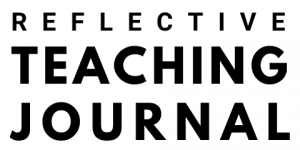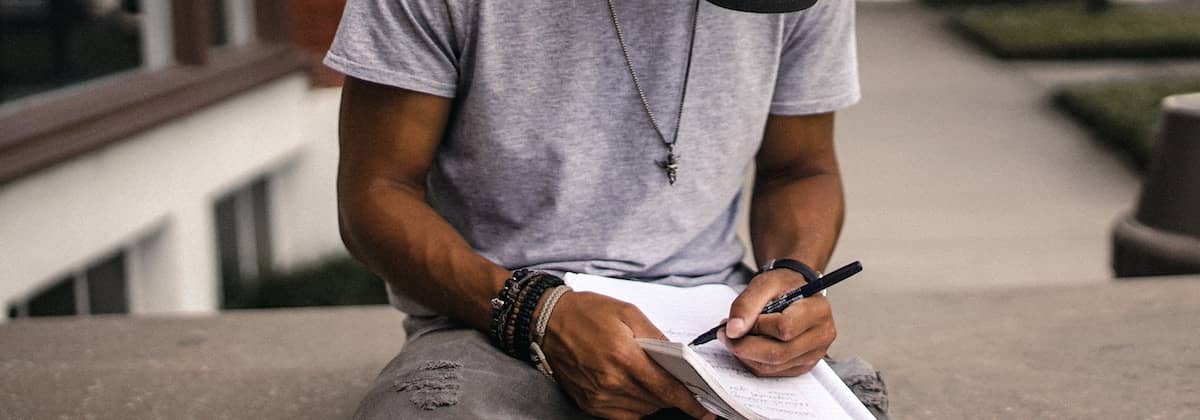Reflective teaching can make all the difference when you consider that many teachers have good days; however, many more teachers feel overwhelmed and do not know how to cope at the end of a very stressful and grueling day. In this case, reflective teaching is an imperative tool for teachers.
Reflective teaching is a process whereby teachers reflect on their teaching practices in order to examine the overall effectiveness of their instructive approaches. Improvement or change in teaching methods may be required, depending on the outcome of this analytical process, which is based on critical reflection.
The reflective teaching process can be an excellent way for new and seasoned teachers to improve their teaching methods and overall mental health. So you may be asking yourself, how do I integrate this method of reflective teaching and self-assessment into my already very busy schedule? The next few sections will provide you with some practical ideas and suggestions, along with ways you can use a reflective teaching journal to document your self-reflective work.
Teaching and the Art of Self-Assessment
Every teacher knows that planning lessons basically involves preparing materials and delivering information. Yet, there is much more to a successful experience during the teaching process. For example, successful lessons also need assessment or evaluation. The best time to do this is right after the lesson, when your ideas are still clear and fresh. Reflecting on your lesson and your overall success on a regular basis does require organization, time and patience.
This is particularly true if your experience was not what you expected and your emotions are running high. Noting down your classroom experience will allow you to the time to reflect and focus, while keeping your emotions in check, as you put your thoughts down on paper. You can then move on and turn the page, so to speak. As time passes, the emotions will fade; however, you will have a written trace of the experience.
You may then reread your words with more distance and a critical eye to better comprehend the real underlying issues associated with that negative experience.
Thankfully, not all classroom experiences are negative. Teachers often share many special moments with their students and these precious moments should also find their way into your notations. Without a doubt, it is when moments are most difficult that these precious memories remind us of our reasons for choosing this wonderful and rewarding, but often challenging and taxing vocation. Revisiting those exceptional experiences is the key to boosting your morale. This will also help you to regain your confidence and stamina, which are both required qualities for a long healthy career as a teacher.
Pedagogy and the SWOT Analysis
One of the most effective practices of experienced educators (whatever the subject matter) involves reflection. In practicing reflective teaching, teachers look back on and evaluate their teaching, as well as their student’s responses, behavior and successes or failures. In assessing their teaching, teachers become more aware of not only what they are teaching, but also why and how they are going about their teaching (methods and approach). Various elements such as the lesson, the materials used and the learning environment, must be taken into consideration. In addition, it is important to take into consideration the students themselves and their individual needs and learning strategies as well.
Even the most carefully planned lesson can result in full or partial failure. Very often, busy teachers will simply disregard those challenging or unsuccessful moments. Months later and the following year, those memories and the associated emotions will have faded. The teacher is very likely to go about preparing in the exact same way, with the same effort, professional investment and approach. Unless something was changed, the teacher will most likely follow the same path and regrettably experience failure once again.
Instead of being caught up in this vicious circle, why not consider adopting the SWOT (Strengths, Weaknesses, Objectives and Threats) analysis to reflective teaching and methods analysis? Critical analysis of your classroom experience right after the lesson will assist you in identifying specific elements of the lesson that were misunderstood, ignored or appreciated by the students. Be sure to not only make observations on your teaching, but also on how students react to your lessons.
Keep in mind that critical reflection is based on both positive and negative feedback. Whatever conclusions you come to about your teaching approach and lessons, whether it is positive or negative, looking back is always beneficial and useful. In looking back, we can better prepare for the future.
Dealing with Critical Self-Reflection
Most people long for approval and fear truth. This is especially true in the classroom. Teachers strive to be accepted and understood by their students. They frequently measure their success by measuring and evaluating the success of their students. Why would any teacher want to willingly choose to integrate and adopt critical reflection into their daily routine?
Well, active problem-solving is helpful, whereas ruminating is destructive. When you keep remembering a negative experience you had over and over again or you may have nightmares or physical symptoms of stress, your inner self is slowly dragging you down and wearing you out (intellectually, physically and emotionally).
While it is true that the idea of critical feedback can be intimidating and perhaps feel traumatic because it threatens two of our most fundamental psychological needs: safety (perceived physical, social, or material security) and worth (a sense of self-respect, self-regard, or self-confidence), it does not always have to be negative. Your mind can be your best asset or worst enemy. You need to learn to train it well. With practice, you can develop a more productive inner dialogue that will fuel your efforts to reach your goals.
Pay attention to your thoughts and feelings. Validate them by writing them down and structuring them so that you can easily refer to them later, when and if necessary. You can examine your notes with a clear mind much later. Use your critical reflections as a goldmine of your professional experience. Sift or dig through them to find the solutions you need to improve your methods and overall teaching experience.
Pretend that you are reading the notes of a colleague – what advice would you give your colleague? People are often very hard on themselves and much more compassionate with others. Remember, self-assessment is a careful and delicate balance between self-improvement and self-acceptance. Accept who you are (with your limits and comfort zones) and invest in becoming an even better version of yourself by venturing outside of your boundaries a little each day.
The Reflective Teaching Journal
Each new day is a fresh opportunity to begin anew. Reminding yourself that challenges only strengthen you will reinforce the idea that you can handle tough times. This will increase your confidence. By reflecting on success or failure in the classroom, you will better assess and comprehend your teaching to better respond to your student’s needs.
To improve the overall appearance of your notations, you should adopt a reflective teaching journal (you can find samples here). This is the most efficient way to organize your thoughts, while archiving your daily events. Templates that include sections in which you can articulate reasons and strengths for your teaching strategies are useful. You should also identify areas for revision or improvement in terms of your teaching, but also the environment, if you encounter problems therein.
At my university, I recently had issues with smokers in front of my classroom windows. Not only were they making too much noise, but they were also smoking – right in front of the open windows. As the classroom filled with cigarette smoke, the students quickly became distracted and annoyed. I closed the windows, but it was a very hot and humid day. Everyone was uncomfortable. After noting the problem and reflecting on possible solutions, I decided to ask our secretary to make up large signs (both visual and textual) and post them on the windows. It worked and the learning environment is once again stable!
Teachers who explore their own teaching through critical reflection develop changes in attitudes and an awareness which they believe can benefit their professional growth as teachers, as well as improve the kind of support they provide to their students. The reflective teaching journal, is definitely an excellent tool for this pedagogical exploration.
Looking for reflective teaching journal templates that you can download, print and use for self-reflection? We have a number of them available on this page on our site.

Related Questions
How do you become a reflective teacher? Some ways you can become a reflective teacher include journaling on your teaching practices in order to examine the overall effectiveness of your instructive approaches. Implement improvements or changes after self-analysis of your teaching methodologies via SWOT analysis for example.
What are the characteristics of a reflective teacher? Some characteristics of a reflective teacher include the ability to self-analyze, identify their own strengths, weaknesses, objectives and threats, as well as good time-management skills, organisation, patience, self-acceptance, and the well for, and implementation of, self-improvement of self and teaching practices.
Reflective teaching is a process whereby teachers reflect on their teaching practices in order to examine the overall effectiveness of their instructive approaches. Improvement or change in teaching methods may be required, depending on the outcome of this analytical process, which is based on critical reflection.

